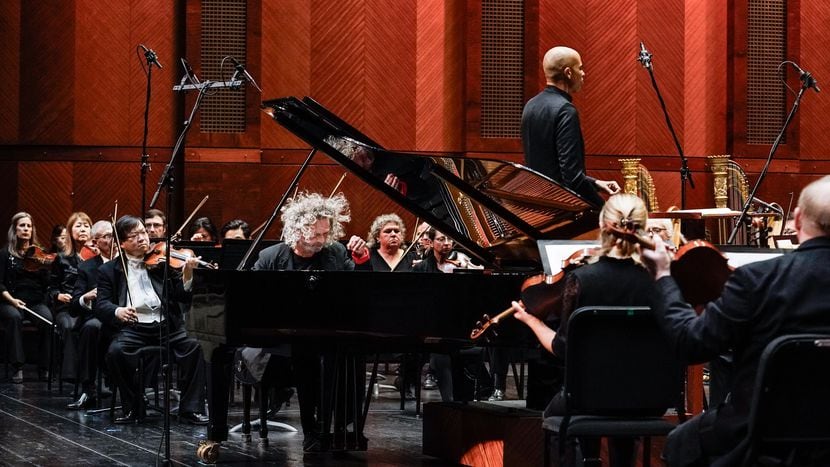
FORT WORTH — Chances to hear Alexander Zemlinsky’s The Mermaid don’t come along every day. But there it was, all three movements and 45 minutes of it, on Friday night’s Fort Worth Symphony Orchestra concert at Bass Performance Hall. Led by principal guest conductor Kevin John Edusei, the program also included Brahms’ Second Piano Concerto, with pianist Andreas Haefliger. It was not, alas, one of the orchestra’s better nights.
The early 1870s were a fertile time for composers’ births: Viennese-born Zemlinsky was part of a baby boom including Scriabin, Vaughan Williams, Rachmaninoff, Reger and Schoenberg. Although only three years younger, Schoenberg became a Zemlinsky student.
Composed in 1902-3, The Mermaid was a response to romantic disappointment, after Zemlinsky’s student Alma Schindler spurned his affections to marry Gustav Mahler. It was also inspired by Hans Christian Andersen’s fairy tale The Little Mermaid, about disappointment and sacrifice. Zemlinsky apparently identified himself with the spurned mermaid, Schindler with the prince who marries another.
The music sometimes evokes scenes from the fairy tale, including rippling waters, a great storm and a ball. The mermaid is personified by solo violin.
Zemlinsky indulges luxurious orchestral resources, including six horns. The music rises and falls, ebbs and surges, in often complex textures. The musical language is late romantic, richly colored, lush with chromaticism.
Leading with gestures generously expressive but precise, Edusei seemed in full command of the sprawling work. But he gave no less attention to details of color and texture. The orchestra gave him its considerable all. Violin solos could have used more precise tuning here and there, but there were other notable solos for cello, horn and clarinet.
It was all rather much of a muchness, but the audience responded with enthusiasm. A multiplicity of microphones indicated a recording in the works. Personally, I don’t need to hear the piece again.
The Brahms has had bad luck lately. A month after an unsubtle Dallas Symphony performance, with a sometimes shaky Rudolf Buchbinder, Haefliger sometimes seemed to struggle with an admittedly formidable work.
The orchestra sometimes got louder than necessary, but for the most part Edusei evinced careful attention to dynamics and clarity. The opening horn solo, warmly intoned by Gerald Wood, was about halfway between the “traditional” slow tempo and the pace marked in the score. While most performances belabor the cello solo opening the slow movement, Allan Steele must have been quite close to Brahms’ mobile marking — although a less rapid vibrato would have been preferable.
As with Buchbinder in Dallas, Haefliger played most of the notes, but there were too many treble splats and too many murky clatters blurring what Brahms wrote. Lacking a warm center, Haefliger’s tone turned hard under pressure. When the going got tough, he sometimes rushed, challenging Edusei to keep up.
Details
Repeats at 7:30 p.m. Saturday and 2 p.m. Sunday at Bass Performance Hall, Fourth and Commerce, Fort Worth. $26 to $99. 817-665-6000, fwsymphony.org.
